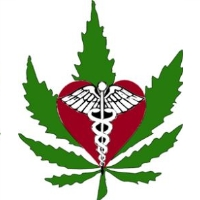Dire Warnings about Medical Marijuana in California Turned out to be Wrong

The New York Times headline might have been a bit broad—“Few Problems with Cannabis for California”—but the research it was reporting on was not. Two economists wanted to know how the worst-case scenario turned out for California’s 1997 legalization of medical marijuana.
D. Mark Anderson at Montana State University and Daniel I. Rees from the University of Colorado, Denver examined a worst-case scenario for marijuana legalization proffered by Mark Kleiman, a prominent drug-policy expert. Kleiman laid out a scenario that included a surge in heavy drinking, “carnage on our highways” and “massive” increases in pot use by minors.
Drawing heavily on a wide range of studies, the researchers found that nothing worst-case occurred and concluded that legalizing marijuana is “likely to improve public health.” They found that the partial legalization of marijuana had not led to increased lawlessness, a surge in drug use or increased carnage on the roads. Pot and alcohol were not complementary drugs; rather, they were treated as substitutes by their users.
Pot didn’t lead to more alcohol use. In fact, the researchers found the opposite. People are shifting from alcohol to marijuana as their drug of choice and, while pot has its drawbacks it has far fewer social and medical liabilities than booze. Picking a drug appears to be a zero-sum game, they said, where an increase in one drug’s use decreases the other. Drivers under the influence of marijuana drive much better than those who have been drinking, potheads are less volatile in their social interactions and alcohol’s health consequences are much worse.
The report, published in Journal of Policy Analysis and Management, “drew heavily” on studies done of medical marijuana legalization to reach its conclusions on what to expect when marijuana is legalized for recreational purposes.
For now, data on how the general public reacts to legal marijuana availability is limited. The researchers viewed California as a de facto legal recreational pot state and Colorado and Washington as about to join it. But legalization efforts in the states indicate that might not be the case for long.
A Gallup poll released last week showed that for the first time, Americans favor legalizing marijuana. Whether the numbers are influenced by the fact that more of them are smoking pot now (38% admit it), the fact remains that 58% want it legal, while 39% don’t. That’s quite a reversal from the heady days of 1969 when the public rejected pot 84%-12% despite the younger generation’s fondness for sex, drugs and rock ‘n roll.
That generation is now a bunch of aging baby boomers and they want what they want. While folks 65 and older still just say no, 53%-45%, the boomers, age 50-64, want it 56%-40%. And it’s even more popular among younger people. The group 30-49 favors it 62%-35% and those 18-29 like it 67%-31%.
The California experiment has produced a cottage industry of growers and dispensers with financial advantages for localities that tax the ventures and has altered economies in places like Mendocino County, the heartland of marijuana cultivation. Those localities that have implemented strong regulations for controlling medical marijuana, like San Francisco, Oakland and Berkeley, have avoided much of the social and political upheaval experienced by cities like Los Angeles.
All this has been going on while marijuana is technically still illegal under federal law. California gave medical marijuana a green light in 1996 with passage of the Compassionate Use Act and authorized non-profit coops to sell it in 2004. But federal law has criminalized pot since the early part of the last century. Federal officials, including U.S. Attorney General Eric Holder, indicated as late as early 2011 that they would not be cracking down on medical marijuana use, but that abruptly changed at the end of that year.
–Ken Broder
To Learn More:
Few Problems with Cannabis for California (by Adam Nagourney and Rick Lyman, New York Times)
The Legalization of Recreational Marijuana How Likely is the Worst-Case Scenario? (by D. Mark Anderson and Daniel I. Rees, Journal of Policy Analysis and Management) (pdf)
- Top Stories
- Controversies
- Where is the Money Going?
- California and the Nation
- Appointments and Resignations
- Unusual News
- Latest News
- California Forbids U.S. Immigration Agents from Pretending to be Police
- California Lawmakers Urged to Strip “Self-Dealing” Tax Board of Its Duties
- Big Oil’s Grip on California
- Santa Cruz Police See Homeland Security Betrayal in Use of Gang Roundup as Cover for Immigration Raid
- Oil Companies Face Deadline to Stop Polluting California Groundwater





